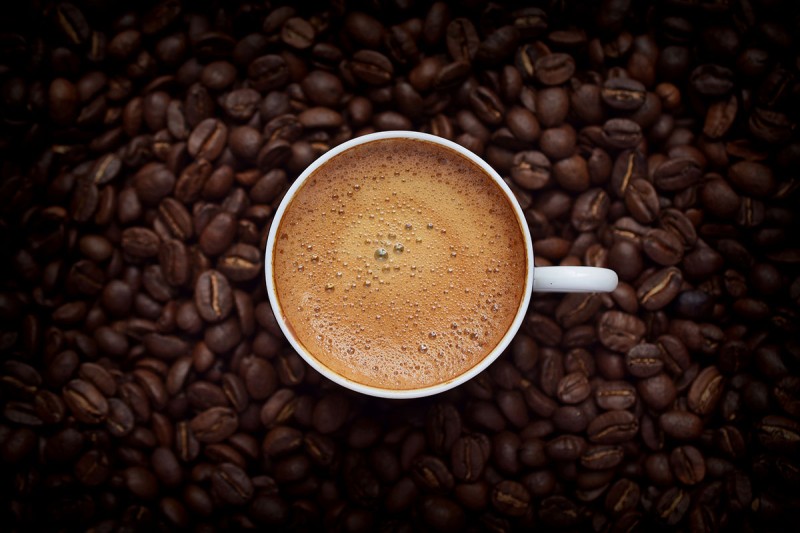
In recent years, intriguing research has suggested that drinking coffee might protect against colorectal cancer. A study published in 2016 in Cancer Epidemiology, Biomarkers, and Prevention looked at coffee consumption in more than 9,000 people in Israel. The findings showed that drinking as little as one to two cups of coffee a day was associated with 26% lower odds of developing colorectal cancer. Another study, published in 2017 in Gastroenterology, found that people with colorectal cancer who drank at least four cups of coffee per day after their diagnosis had a significantly lower risk of early death — from either cancer or any cause — compared with those who didn’t drink coffee.
So what’s the verdict? Should people start downing coffee to prevent or foil colorectal cancer?
Garrett Nash, an MSK surgeon who specializes in treating colorectal cancer, says don’t jump to conclusions. The picture is still murky for a number of reasons.
Epidemiological Studies Are Not Conclusive
To draw a connection between coffee and cancer risk, researchers have mainly relied on epidemiological studies. These look at whether a certain risk factor is associated with a disease. This usually involves making an association after the fact, meaning looking at who did or didn’t have cancer and asking them about coffee consumption. But it is hard to tease out a single dietary cause when complicating factors, such as other health habits, may be involved. In addition, epidemiological studies often rely on people’s memories of what they ate or drank, which can be unreliable.
Plus, there can be alternative explanations, including something called reverse causation. For example, someone with a digestive tract disorder or bowel symptoms, both of which increase the risk of colorectal cancer, might avoid coffee because it does not sit well with them.
More conclusive evidence could probably be produced by a prospective, randomized trial in which people who are randomly assigned to drink coffee or not are followed over time. But such trials are expensive and take a long time.
“I doubt we’ll ever have a randomized trial to study the effects of coffee,” Dr. Nash says. “I think the breakthroughs are going to come through understanding mechanisms better — how a specific chemical compound affects the body. This includes how it affects the bacteria in the digestive tract, what we call the microbiome.”
The Value of the Microbiome
Researchers have only recently begun to appreciate the profound importance of the microbiome on human health. This is the community of bacteria, viruses, fungi, and other organisms found throughout the body but especially in the digestive tract, mouth, and genitals, as well as on the skin. MSK scientists have found that these microbes can affect cancer outcomes. For example, they provide nourishment that helps repair the immune system after a bone marrow transplant.
Scientists know that the microbiome plays a major role in how food and drinks affect the body. This further complicates the picture when trying to isolate the effect of a specific factor, such as coffee consumption.
Additionally, coffee itself is made up of more than 1,000 chemical compounds. Although caffeine is the most well-known, the anticancer effect appears to be present with decaffeinated coffee as well. It is very difficult to determine which compounds might be protective or how.
“Obviously, everything we eat and drink passes through the digestive tract, so understanding how the components of our diet interact with the microbiome will be important to clarifying how it might promote cancer or reduce its risk,” Dr. Nash says.
The Verdict: Coffee Is Not Important but the Big Health Picture Is
Dr. Nash says the current studies should not be grounds for changing coffee-drinking behavior. “People should feel free to have coffee, but there’s no reason to start drinking it more often as a preventive measure,” he says.
What’s more important, he says, is that people keep an eye on the big picture and follow well-established health guidelines. “Almost every patient asks me what they can do to keep the cancer from coming back,” he says. “I tell them to cut down on processed food; eat plenty of fruit, vegetables, and whole grains; drink alcohol in moderation; exercise; and don’t smoke.
“If you enjoy coffee, feel free to continue drinking it in reasonable amounts.” he adds. “Just don’t add sugar.” Consuming large amounts of sugar can lead to weight gain and increase the risk of obesity and diabetes, which may in turn increase the risk of cancer and other health problems.




